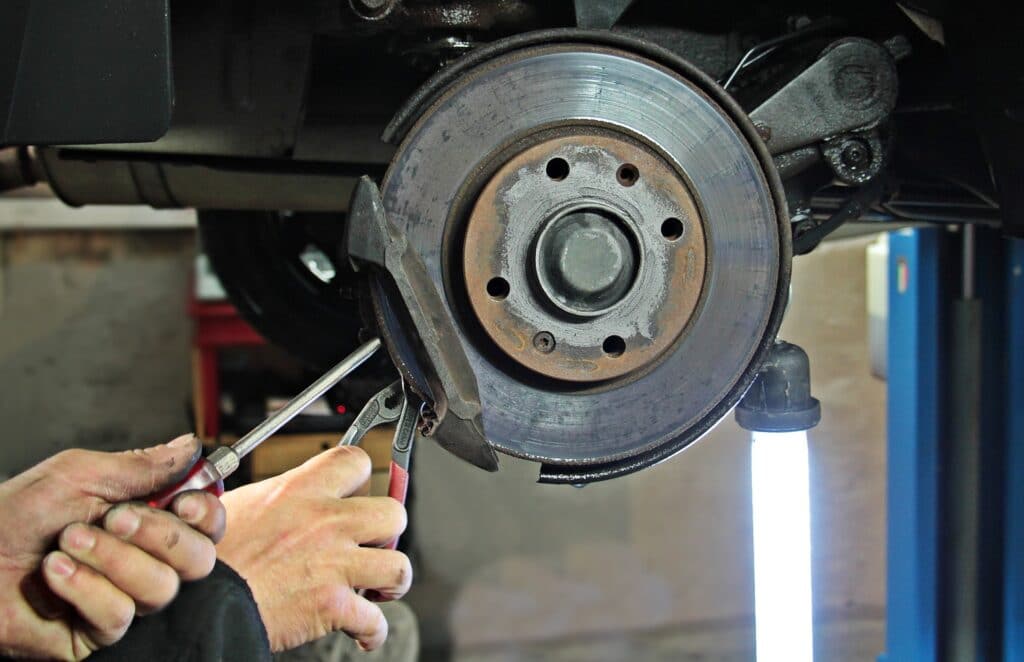
Squeaky car brakes may indicate a fault in your braking system. It’s important to recognise when unconventional noises are perfectly normal or when they’re a cause for concern. This article will detail why braking systems make unusual noises and how the problem can be fixed.
What causes car brakes to squeak?
Worn brake pad material
The squeak of your brakes is caused by vibrations. Braking systems are comprised of various components that work in tandem to slow your vehicle down and grind it to a halt.
These components include brake pads, which squeeze a metal rotor to engage the brakes. When the material of the brake pads wears down, they fail to squeeze the rotor sufficiently. Vibrations are produced in the squeezing attempt, and it is these vibrations that generate the squeaky noise. The noise is usually more perceptible than the vibrations themselves.
However, squeaks aren’t always indicative of a fault. It is natural for brakes to make noises occasionally. Factors such as dusty conditions, temperature, humidity and forcefulness can all impact the behaviour of your brakes, leading to the production of various noises. These noises are perfectly normal and should cease once the driving conditions have changed.
Overnight rust
One of the most common causes of squeaky brakes is overnight rust. Overnight, moisture from rain, dew or condensation will collect on the surface of the rotor, creating a thin layer of rust. As the rotor turns, the rust can get caught on the brake pad. This can cause a number of sounds, including a hissing, grinding and squeaking, but should cease shortly after a few uses.
New car squeaks
You may also find that the braking system of a new car is squeaky. This is because the braking pad is new, and so the material will be tough. Once it has matured a little, the squeaking should cease. The squeak of a new car should only be sporadic. It is only when a squeak is consistent that it needs to be addressed.
How do you fix squeaky brake pads?
Consistently squeaking brake pads will likely need repairing or replacing. Brakes are a critical component of a vehicle and should be addressed by professionals to ensure the vehicle is completely safe to drive. Visit a vehicle servicing centre to have your brakes assessed and remedied by industry professionals. Some options to eliminate squeaky brakes include:
- Replacing the brake pads — this is the most complete but costly option. Receiving an entirely new brake pad system will eliminate any and all problems and provide your vehicle with new and updated components.
- Change kevlar pad to a metallic or ceramic compound — rather than replacing every component, the kevlar pad could be replaced with a ceramic pad. As ceramic pads don’t contain steel fibres, the noise generated is beyond the range of human hearing. This will eliminate squeaking in all circumstances, ridding the distracting noise but failing to alert you to a problem with your brakes in the future.
Oaks Services is Surrey’s leading provider of MOTs and car repairs. We offer a comprehensive brake repair and replacement service, ensuring any and all problems are remedied efficiently. To enquire about any of our services, get in touch today.

